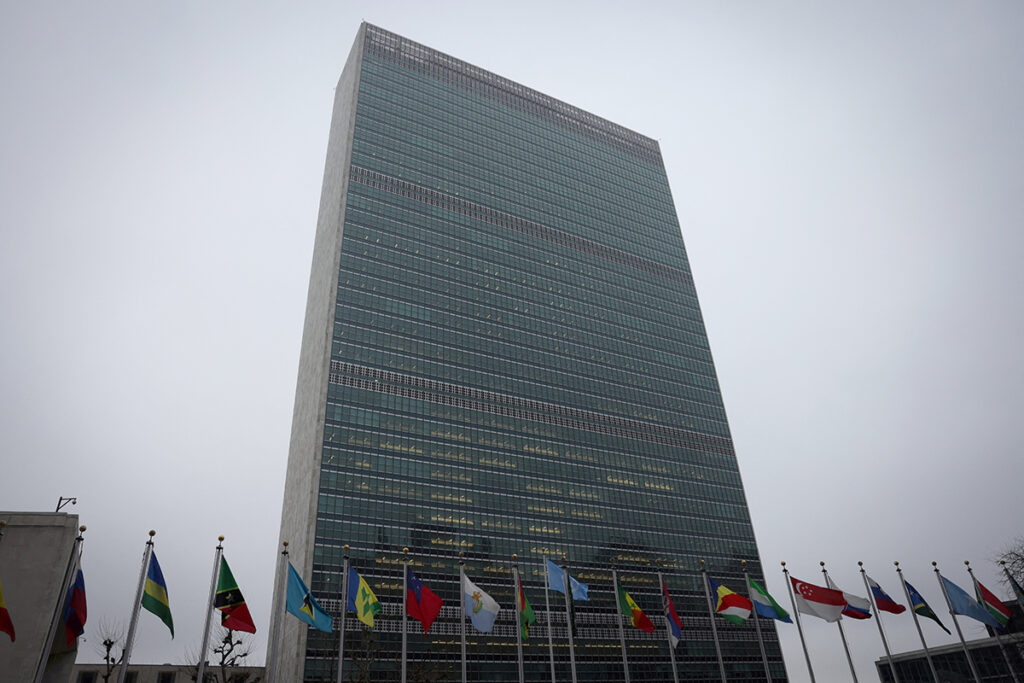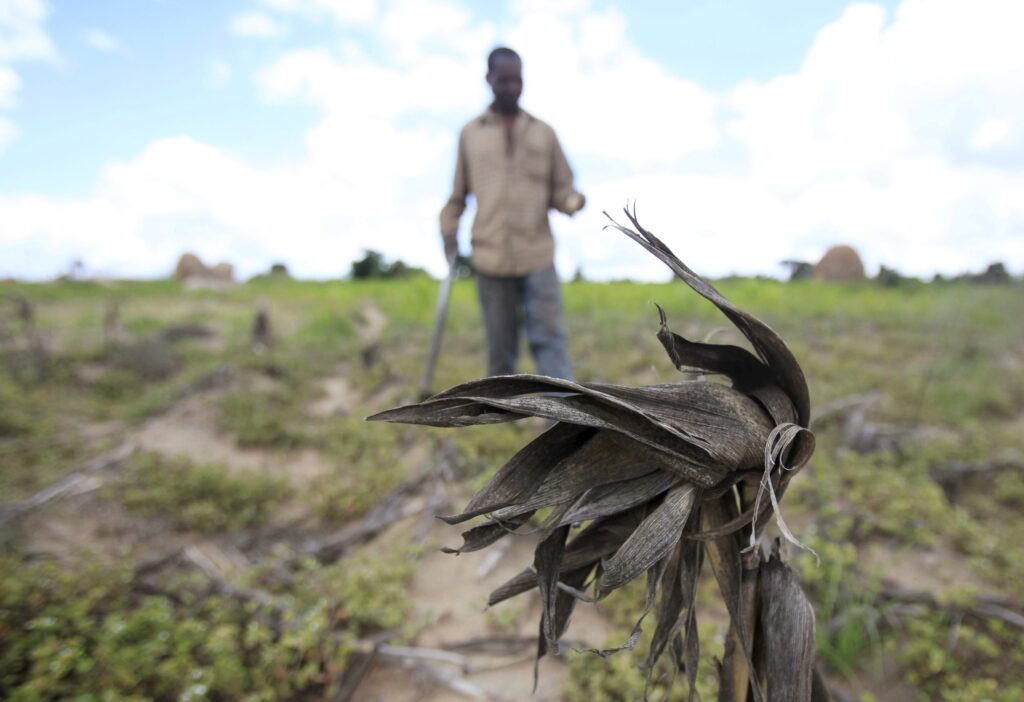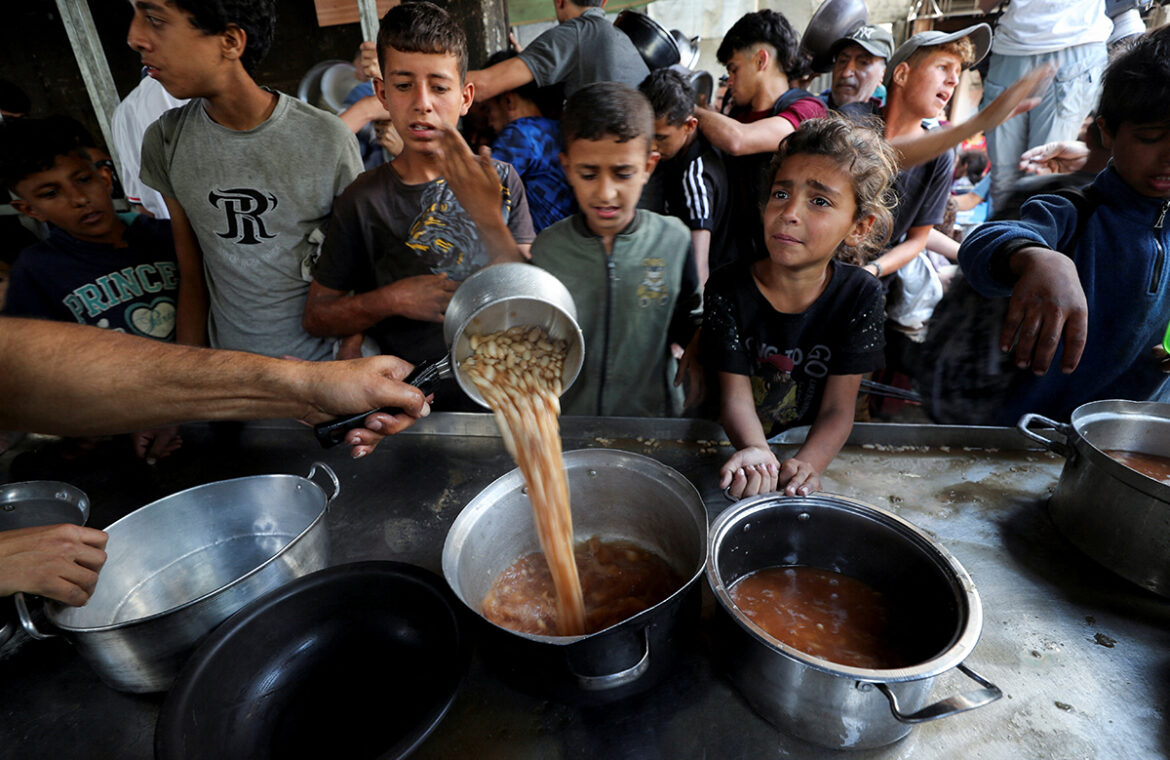(OSV News) — The Holy See’s diplomat to the United Nations has called for three key priorities in addressing the global crises of poverty, conflict and climate change.
Archbishop Gabriele G. Caccia, the Holy See’s U.N. permanent observer, shared his thoughts in a statement he delivered Oct. 13 at the U.N. General Assembly’s Second Committee Debate on sustainable development.
The archbishop described the current moment as a “critical juncture” in which those three crises have overlapped. As a result, said Archbishop Caccia, “a commitment to integral human development is more vital than ever.
The World Bank Group’s 2024 “Poverty, Prosperity, and Planet Report” notes that efforts to reduce global poverty have “slowed to a near standstill,” with almost 700 million people, or 8.5% of the world’s population, living on less than $2.15 per day.
The International Committee of the Red Cross has identified more than 120 armed conflicts taking place throughout the world. Globally, defense spending reached $2.72 trillion in 2024, up 9.4% from 2023, “the steepest rise since at least the end of the Cold War,” according to data from the Stockholm International Peace Research Institute.

In May, the U.N.’s World Meteorological Organization reported that “global climate predictions show temperatures are expected to continue at or near record levels in the next five years, increasing climate risks and impacts on societies, economies and sustainable development.”
Archbishop Caccia pointed to Pope Francis’ 2015 encyclical “Laudato Si'” as “prophetic in its highlighting of the interconnectedness of people and the planet” — but quoted Pope Leo XIV, who recently lamented, “We seem incapable of recognizing that the destruction of nature does not affect everyone in the same way.”
Archbishop Caccia proposed “three concrete approaches” to tackling the challenges at hand: rectifying ecological debt, taking concerted action to protect biodiversity, and promoting “education for integral ecology.”
A moral and ethical response to ecological debt — which Pope Francis described as “commercial imbalances with effects on the environment,” with some nations disproportionately using natural resources for lengthy periods — requires countries and sectors most responsible for contributing to the issue to support those most affected, said Archbishop Caccia.
He said such support “can take many forms,” among them “adequate financing, debt relief in times of crisis, the sharing of appropriate technologies, and capacity building.”
The archbishop also urged “ambitious action to preserve biodiversity,” which he said is “not optional, but a moral duty of stewardship.”
“The rapid loss of species, the destruction of habitats and the pollution of air and water are not just ecological concerns; they affect people’s lives profoundly,” he said.

Education for integral ecology — envisioned by Pope Francis as a holistic recognition that humans engage with the environment along economic, political, social, cultural and ethical lines — is vital, said Archbishop Caccia.
“Lasting change cannot be achieved through policies alone. It also requires a conversion of hearts and minds,” he said. “The change of lifestyle should be fostered through education that informs choices, inspires solidarity and equips young people to build a culture of sustainability.”
Such educational initiatives “should not be limited to technical solutions,” but “must also include ethical formation to cultivate the collective responsibility for safeguarding creation,” said the archbishop.
“By promoting ecological education, we can nurture a new way of living, one that respects both the dignity of the human person and the integrity of creation,” he said.
Gina Christian is a multimedia reporter for OSV News. Follow her on X @GinaJesseReina.




